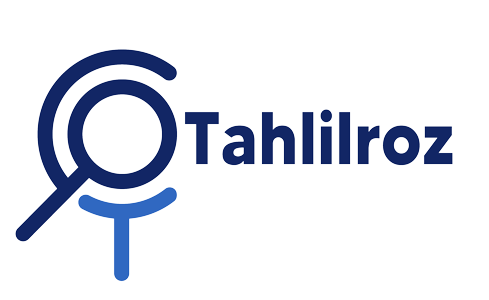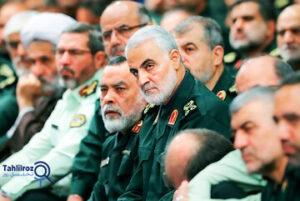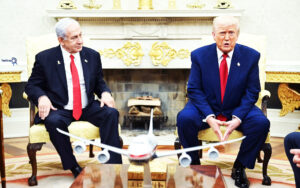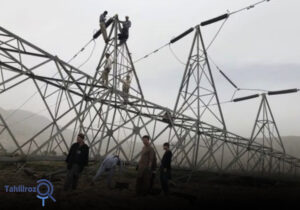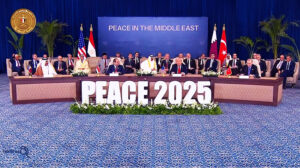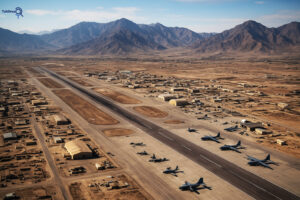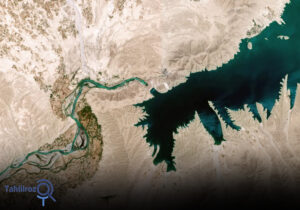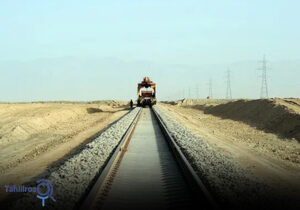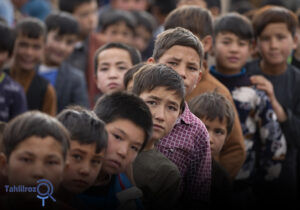A look at the UN Security Council report on the Taliban
Recently, the analysis and monitoring team of The Sanctions Committee of the UN Security Council, published a fairly comprehensive report on the situation in Afghanistan under Taliban rule.
The main points of this report are the Pashtunization of the Taliban and the removal of other ethnic groups from power, the deep connection of this group with other terrorist groups, especially the Al-Qaeda network and the Tehreek-e-Taliban Pakistan, the freedom of action of foreign fighters in Afghanistan, the involvement of key Taliban individuals in opium cultivation and production and drug trafficking, intra-Taliban disagreements, and the monopolization of Taliban’s leader.
Is it really so? To what extent are the realities in Afghanistan compatible with the findings of this report?
- Pashtunism in the Taliban government, mainly mentioned in the UN Security Council report on the Taliban
In the report of the analysis and monitoring team of the Security Council, the structure of the administration of the Taliban is Pashtun-oriented and based on the policy of eliminating other ethnic groups and is described as oppressive.
In the UN Security Council report on the Taliban, it is stated that there are only 5 non-Pashtun ministers in the Taliban cabinet, and 25 out of the 34 governors are Pashtuns, which shows the group’s Pashtunism in the 1990s.
Although the Taliban’s interior minister has said that there is no discrimination in their government, and the Taliban’s spokesperson office has called the Security Council’s report one-sided, unbalanced and far from reality; But in fact, the situation under Taliban’s control is more fragile than what is discussed in this report.
To understand the situation, in addition to the cabinet and provincial governors, it is enough to look at the middle units of power and read the list of Taliban regulations published by the spokesperson office of this group.
The facts show that in addition to the cabinet and governors of the provinces, more than 90 percent of the deputy ministries, 34 provincial security commanders, deputy governors, 6 general commanders of army corps, commanders of army brigades and battalions and Police all over the country, 34 mayors of provincial municipalities, 364 district governors and all district security commanders, and more than 90 percent of central and provincial directorates are all Pashtuns.
Of course, the Pashtunism of the Taliban is not only limited to occupying government positions, but the anti-Persianism of the Taliban is another dimension of the policy of excluding other ethnic groups and Pashtunism in the government of this group.
Today, almost all administrative activities are done in Pashto, Persian language has been removed from government offices, universities, hospitals and cities, and there are even reports that the Taliban destroyed the National Archives of Kabul in order to destroy historical documents of Persian language and culture.

- Deep connection between the Taliban and other terrorist groups
In the other part of the UN Security Council report on the Taliban, the deep connection between the Taliban and other terrorist groups has been discussed. It is stated in this report that the Taliban has maintained its long-standing and traditional relations with the majority of regional terrorist groups.
In this report, the Islamic Movement of Uzbekistan (IMU), East Turkestan Islamic Movement (ETIM), Jamaat Ansarullah Tajikistan (AJ), Al-Qaeda network and Tehreek-e-Taliban Pakistan (TTP) are specifically mentioned, which are supported by the Taliban.
According to the aforementioned report, Saif al-Adl, the current leader of al-Qaeda, is in Afghanistan. 2000 family members of Al-Qaeda network live in Afghanistan. This network has educational bases in the provinces of Nangarhar, Nuristan and Zabul, Badghis, and Helmand.
It is also stated in this report that a number of al-Qaeda members with Afghan identity documents play a consulting role with the Taliban in the cities.
In the report of the analysis and monitoring team of the UN Security Council, it revealed the presence of 4 to 6 thousand fighters of the Tehreek-e-Taliban Pakistan in Afghanistan, who are mainly present in the eastern provinces of Nangarhar, Kunar, Logar, Paktika, Paktia and Khost, and there is mutual cooperation between these groups.
It is also stated in UN Security Council report that the Taliban is connected with several other terrorist organizations. In this report, in addition to giving weapons and bases to terrorist groups, it is also mentioned that the distribution of Afghan passports and ID cards to the members of these groups has provided more freedom of activity for these groups and the threat of terrorism in Afghanistan and the region is being increased.
In UN Security Council report on the Taliban, it is stated that there are signs that the Al-Qaeda network is reviving its capacity and operational ability, “TTP” is carrying out its attacks inside Pakistan with the help of the Taliban, foreign fighters on the borders of Afghanistan are increasing threats against neighboring countries. and the attacks of the ISIS terrorist group have become more advanced and deadly.
- Evaluation of the UN Security Council report on the Taliban
In the evaluation of this part of the report, it should be said that in addition to the facts in Afghanistan that confirm the findings of this report, other reports also talk about the connection of the Taliban with the Al-Qaeda network and the employment of people from this network in the offices under Taliban’s control.
For example, in a report recently published by Long War Journal, this issue was addressed and the Deputy Director of the Taliban Intelligence Department, the Education Director of the Ministry of Defense, the Governor of Kapisa Province and the Governor of Nuristan Province were specifically mentioned as members of the Al-Qaeda network.
In acknowledging the deep connection between the Taliban and the TTP, it is enough to mention the Taliban’s mediation between Pakistan and this terrorist group and the recent decision of the Taliban to move their families to northern Afghanistan.
- The Taliban’s key members’ role in drug production and trafficking
The UN Security Council report on the Taliban states that it is too early to judge the effects of the Taliban leader’s order to ban opium cultivation and combat drug trafficking; But the production and price of narcotics have increased and the Taliban are profiting from ” Methamphetamine ” and the key members of this group are involved in production and smuggling.
In this report, it is mentioned about the increase in the price and production of drugs and the involvement of Taliban key members in the production and trafficking of drugs, while recently the English organization “AlcisGeo” published its findings using satellite images about the effects of the leader’s order.
The Taliban have written about the prohibition of drug cultivation and production in Afghanistan, that the results of this order were unprecedented and the amount of opium cultivation in this country has reached its lowest level in the last 20 years. Although objective evidence to some extent confirms this report in some southern provinces; But the reality is that the Taliban’s approach is tactical, and instead of mass production of opium, this group has prioritized the production and smuggling of industrial drugs, and in this way they can both achieve their desired profit and speak for themselves in front of the international community.
- Intra-Taliban disagreements
One of the axes of the UN Security Council report on the Taliban is the disagreements within the Taliban group. The report states that although the Taliban has maintained its cohesion; But the difference between the factions of this group can be seen over the distribution of posts in government organizations in the center and provinces.
In the mentioned report, Sirajuddin Haqqani’s disagreement with the leader of the Taliban has been revealed, and it has been mentioned that Haqqani is trying to convince the council of scholars of this group that Hibatullah Akhundzada is not a suitable leader, and it is said that he is trying to make Mullah Yaqoob, the son of Mullah Omar, the leader.
The Acting Minister of Defense of the Taliban should appoint Akhundzada instead of Hibatullah, and in front of Mullah Hebatullah, he has decided to dismiss Sirajuddin Haqqani and Mullah Yaqub. On the other hand, Mullah Hibatullah decided to dismiss Sirajuddin Haqqani and Mullah Yaqoob.
Disagreements within the Taliban leaders are an obvious matter. These differences can be seen in all levels of this group’s system and in different dimensions.
Summary of the UN Security Council report on the Taliban
Although the general policy of the Taliban is based on denying these types of reports. So far, this group has not accepted any critical report and called it biased and far from reality.
But the truth is that the UN Security Council report on the Taliban is a part of the existing realities of Afghanistan today; Although that is not all, the actual situation in the country is much worse than what is pointed out in this report.
The silence of the Afghan people does not indicate satisfaction. The Afghan people, especially the non-Pashtun ethnic groups, have nothing to do with the Taliban government and are extremely dissatisfied, and the amount of these dissatisfactions are increasing day by day.
Therefore, it is feared that their strength and patience will be exhausted and we will witness another war, in which all directions will suffer and the main culprit will be the Taliban.
For this reason, it is better for the Taliban to consider the realities of Afghanistan in the internal dimension.
In the external and international dimension, the policy of the Taliban is unacceptable, the connection of this group with other terrorist groups is a threat to the neighboring countries, the region and the world, and in addition to the fact that it is an obstacle to the legitimacy of their government as a legal government by the international community, more international sanctions will be directed at this group.
Therefore, in order to prevent an internal uprising on the one hand and to gain legitimacy in the international community on the other hand, it is better for the Taliban to respect the rights of the Afghan people and to gain the satisfaction of the people by forming an inclusive political government and by cutting ties with terrorist groups and adherence to the fight against drug production and trafficking to provide the international legitimacy of their government.
Khalid Yousefi
Translator: Mohsen Shahrafiee
